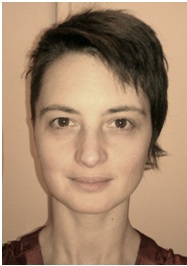In May I attended a great conference, the 4th biennial conference of the Association for Feminist Epistemologies, Methodologies, Metaphysics, and Science Studies (FEMMSS). At the conference, I heard a wonderful plenary talk by Dr. Angela Willey and her colleagues. Dr. Willey is one of our own – a recent (2010) graduate of Emory’s doctoral program in Women’s, Gender, and Sexuality Studies. In her work, she examines the cultural assumptions underpinning contemporary neuroscience research on monogamy and the social implications of this research. At the conference, I asked Dr. Willey if she would agree to be interviewed about her work for the Neuroethics Blog, and she graciously agreed. Before sharing what she said, I am just going to give you a little background about Dr. Willey and about the neuroscience research on monogamy that she analyzes.
Monthly Archives: June 2012
Update: Qualitative Research with Asexual Individuals
I have completed the qualitative research portion of my dissertation project – between Jan. 2011 and May 2012, I conducted 30 in-depth semi-structured interviews with individuals who identify as asexual. I decided to take this opportunity to post a little bit of information about my methods and about the demographics of my sample.
Methods: I posted multiple requests for interviewees on the AVEN website. My request for interviewees was also circulated to two local AVEN-related listservs. The study was open to people 18 years of age or older who live in the United States and identify as asexual or as a member of an asexual community. Interviews were conducted between January of 2011 and May of 2012 using an interview protocol. All interviewees gave informed consent before the interview. Interviewees also filled out a short demographic questionnaire before the interview. Interviews lasted between 30 minutes and 2.5 hours. On average, the interviews lasted slightly more than 1 hour (median: 1 hr). Interviewees were given a $25 incentive for participating in the research. 25 of the interviews were conducted in-person in the following areas: Atlanta (6); New York (3); Boston (5); Los Angeles (4); San Francisco (1); and Washington, DC (6). The other five interviews were conducted over the phone. The project was approved by the Emory Institutional Review Board (IRB) and by the AVEN Project Team. Funding for the research was provided by the Emory Graduate School, a dissertation grant from the Southeastern Women’s Studies Association (SEWSA) and a student research grant from the Kinsey Institute.
